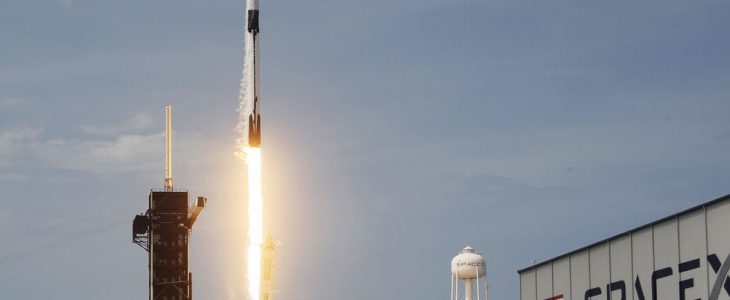
The Crew Dragon launch received a favorable response from Russia’s space agency, which said that having two ISS-compatible vehicles will only benefit crews working there. But Russia won’t be sitting on its hands, it made clear.
Vladimir Ustimenko, the spokesman for Roscosmos, tweeted, “What just happened should have happened a long time ago.”

Built by Elon Musk’s SpaceX corporation, the Crew Dragon capsule left the Earth atop the Falcon 9 rocket, marking the first time since 2011 that NASA has sent its astronauts into space on a US-made spacecraft, and the first time in history that a non-state enterprise has sent humans into space.
Despite Washington and Moscow locking horns over a number of issues, for the Roscosmos official, there is reason enough to celebrate.

Ustimenko explained that it’s crucial to have alternative launch vehicles capable of ferrying crews and cargo to the International Space Station (ISS).
“Anything can happen in space, so you must have at least two [orbital] transport systems capable of maintaining the presence of crews from several countries on board the ISS,” he wrote.
Roscosmos didn’t respond to remarks by US President Donald Trump’s 2020 campaign manager, Brad Parscale, who added political flavor to the launch, saying it’s important that the US does not rely on Russia in this regard.
Musk himself couldn’t resist gently needling the Roscosmos chief Dmitry Rogozin shortly after Falcon 9 lifted off.
“The trampoline is working,” he quipped in a tongue-in-cheek reference to Rogozin, who joked back in 2014 that the US should be ready to send astronauts into orbit using gymnastics equipment if it ever sanctioned Russia’s space industry.
Nevertheless, Roscosmos spokesperson said, his agency won’t simply be standing back and watching: “This year, we’ll be testing two new missiles and, next year, we’ll be resuming our lunar [exploration] program. It’s going to be interesting!” he promised.
The Crew Dragon capsule, carrying NASA astronauts Doug Hurley and Bob Behnken, has successfully detached from the Falcon 9 rocket and entered the Earth’s orbit. It will go on to dock at the ISS, but the length of the men’s stay there is as yet unclear.
Credit: RT
